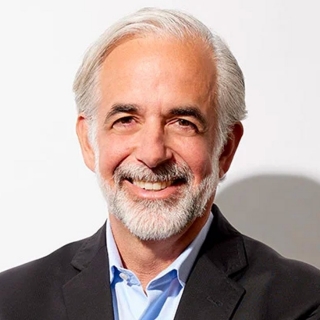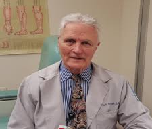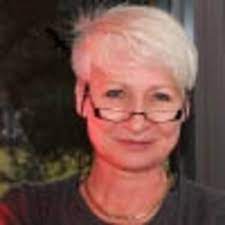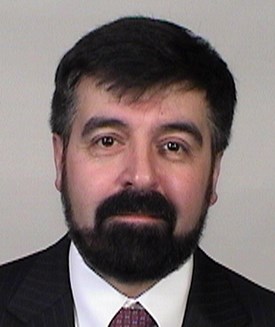About the conference
We are delighted to welcome researchers, clinicians, pharma professionals, patient advocates, and healthcare innovators to the
6th World Congress on Rare Diseases & Orphan Drugs, taking place on September 24–25, 2026 in the heart of Europe—Paris, France. This global conference will serve as a premier platform for discussing the latest research, emerging treatments, and policy changes in the field of rare diseases and orphan drug development. With the theme "
From Discovery to Delivery: Advancing Innovation and Equity in Rare Diseases," this year’s congress aims to spotlight emerging therapies, gene technologies, personalized medicine, and regulatory challenges. The event fosters meaningful dialogue, cross-sector partnerships, and actionable solutions to improve the lives of over 400 million individuals worldwide affected by rare conditions.
“Global Voices. Shared Vision. Lifelong Impact.”
Attendees can look forward to interactive keynote sessions, panel discussions, poster presentations, and workshops that address the clinical, technological, economic, and ethical dimensions of rare diseases and orphan drugs.
The related keywords for this conference are follows:
-
rare disease conference 2026
-
orphan drugs congress Paris
-
gene therapy rare disorders
-
innovations in orphan drug development
-
rare genetic conditions summit
-
Paris medical conference rare diseases
-
CRISPR and rare diseases
-
FDA orphan drug approvals 2026
-
AI in drug discovery
-
compassionate use programs
-
global rare disease awareness initiatives
Why to attend?
Our hybrid event model ensures content is globally accessible—whether you attend in-person in Paris or virtually from any part of the world.
1. Global Platform for Collaboration: Meet leading scientists, clinicians, biotech experts, patient advocates, and policymakers from across the world—all focused on rare diseases and orphan drugs.
2. Explore Cutting-Edge Research: Gain early access to breakthrough studies in gene therapy, personalized medicine, CRISPR, AI in rare disease diagnosis, and innovative drug development.
3. Share Your Work: Present your research through oral presentations, posters, or workshops—get global recognition and peer feedback.
4. SEO & Indexed Exposure for Your Work: All accepted abstracts and speaker content will be indexed on Google Scholar and optimized for SEO, increasing your academic and professional visibility.
5. Aligned with Google Trends: Conference topics are chosen based on rising search trends, ensuring your work is showcased under globally relevant and in-demand themes.
6. Practical Workshops & Case Studies: Participate in hands-on sessions on clinical trials, regulatory approval, compassionate use, and commercialization strategies.
7. Insights from Regulatory Authorities: Learn from FDA, EMA, and other international bodies about current and future orphan drug policies and pathways.
8. Strategic Networking Opportunities: Build meaningful partnerships with biotech firms, pharma companies, patient organizations, and funding agencies.
9. Inspire Innovation & Advocacy: Understand patient journeys, challenges, and advocacy movements that drive real-world change and policy reform.
10. Hybrid Format – Flexible Access: Attend in-person in Paris or join virtually from anywhere—without missing key content.
11. Career Growth & Funding Leads: Connect with potential employers, collaborators, investors, and grant providers active in rare disease research and development.
12. Experience Paris – Science Meets Culture: Enjoy a scientific gathering in one of the most beautiful cities in the world, known for its history, cuisine, and innovation.
Who should attend ?
-
Biomedical & Clinical Researchers: Experts working on rare disease biology, diagnostics, therapeutic targets, and translational research.
-
Medical Professionals & Specialists: Physicians, geneticists, paediatricians, neurologists, and other clinicians treating patients with rare conditions.
-
Hospital & Healthcare Administrators: Professionals managing rare disease clinics, specialized care units, or community outreach programs.
-
Pharmaceutical & Biotech Industry Professionals: R&D heads, regulatory affairs specialists, clinical trial managers, and drug developers focusing on orphan drug pipelines.
-
Academic Faculty & University Scholars: Professors, lecturers, and PhD students involved in life sciences, genetics, and public health research.
-
Postdoctoral Fellows & Medical Students: Early-career researchers seeking opportunities for learning, publishing, and networking in the rare disease space.
-
Patient Advocacy Groups & NGOs: Representatives from rare disease foundations, non-profit organizations, and advocacy alliances supporting affected families.
-
Regulatory and Policy Experts: Members of agencies like FDA, EMA, CDSCO, or national health authorities focusing on rare disease policy and orphan drug frameworks.
-
Investors & Venture Capitalists: Individuals and firms interested in funding biotech innovations, gene therapies, or rare disease start-ups.
-
Laboratory Technologists & Diagnostics Professionals: Specialists working on genetic testing, early detection methods, and advanced diagnostics for rare diseases.
-
Legal & Ethical Professionals: Experts in bioethics, medical law, and intellectual property rights related to orphan drugs and patient rights.
-
HealthTech Innovators & Data Scientists: Developers, engineers, and AI professionals creating tools for early diagnosis, clinical data management, or virtual care for rare patients.
-
International Development & Public Health Leaders: Representatives from WHO, UNICEF, and public health agencies focused on global equity in rare disease treatment access.
Scientific sessions/tracks
This session explores advanced genomic techniques such as whole genome sequencing (WGS), whole exome sequencing (WES), and variant annotation in diagnosing rare diseases. Topics include bioinformatics pipelines and diagnostic yield. SEO keywords include genomic sequencing for rare diseases and NGS diagnostics, which help rank the content on Google. Indexed content will be monitored through Google Search Console, ensuring it reaches researchers searching Google Trends for cutting-edge diagnostic tools in genetic research.
This session highlights the preclinical and clinical stages of orphan drug development. Topics include novel drug screening platforms, regulatory pathways, and commercial viability in ultra-rare disease markets. Optimized for keywords like orphan drug discovery, rare disease treatment development, and orphan drug approval process, this session content will be indexed using sitemaps and tracked via Google Console. Google Trends supports keyword relevance, helping sponsors and researchers find the latest insights into developing life-saving drugs for rare diseases.
Focusing on gene editing breakthroughs like CRISPR, base editing, and AAV-mediated delivery, this session targets innovations for correcting genetic mutations. SEO keywords include CRISPR rare diseases, gene therapy orphan conditions, and genetic editing 2026. Structured metadata will help index this track on Google Scholar and academic portals. Google Console metrics will monitor traffic, while Google Trends analysis ensures alignment with top global searches related to advanced gene therapies for rare inherited disorders.
This track covers congenital and early-onset rare disorders, newborn screening, and the integration of genetic counseling. Topics like neonatal genomic panels and early intervention are covered in depth. SEO keywords include pediatric rare disease screening and newborn diagnostics rare disorders. Google indexing ensures medical professionals and pediatric specialists can access session content. Search Console tools will assess click-through rates, while Google Trends determines relevance in family health and pediatric care sectors.
Explore rare CNS conditions such as Batten disease, leukodystrophies, and Rett syndrome. The session includes updates on neurogenetics, therapeutic targets, and behavioral interventions. SEO keywords like rare neurological disorders and neurodevelopmental syndromes ensure Google Scholar and neuroscience platforms index this content. Google Console will track global interest, while Google Trends helps identify rising searches in neurological rare diseases for tailored visibility across search engines and medical directories.
This session addresses ethical dilemmas in rare disease research, patient consent, and equity in drug access. Legal frameworks for data sharing and intellectual property are also discussed. Indexed using rare disease ethics and ELSI rare drug trials, this content is designed for cross-disciplinary reach in law, bioethics, and research policy. Google Console insights monitor indexing accuracy, while Google Trends helps ensure popular discussions on patient rights and equitable treatment access are captured.
This track focuses on AI-based platforms, decision-support algorithms, and predictive models for rare disease diagnosis. SEO terms include AI diagnosis rare diseases, machine learning healthcare rare disorders, and digital health rare diagnostics. Indexed with structured data and alt-texts for rich search visibility, this session is Google Console-enabled for traffic monitoring. Google Trends alignment ensures that content targets emerging digital health interests and tech innovation audiences across academic and clinical platforms.
This session explores rare systemic autoimmune disorders like Behçet's, Castleman disease, and vasculitis. Topics include immunogenetics, novel biologics, and patient-reported outcomes. Optimized for terms like rare autoimmune conditions and orphan immunotherapy, the content will be indexed in immunology and rare disease databases. With Google Console tracking page performance and Google Trends identifying rising interest in immunologic research, this session helps bridge gaps between immunology researchers and rare disease advocates.
Understand the global distribution, data challenges, and underreporting of rare diseases across continents. This session includes registries, health policy data, and global surveillance networks. SEO keywords such as rare disease prevalence, global epidemiology rare conditions, and rare disease burden data ensure content visibility. Indexed in global health repositories, this session’s reach is supported by Google Console analytics and aligned with trending search terms reflecting global health equity and data access.
Explore how induced pluripotent stem cells (iPSCs), bone marrow transplants, and regenerative protocols are transforming treatment. Indexed with keywords stem cell therapy rare diseases and regenerative medicine orphan conditions, this session is optimized for Google Scholar, biotech platforms, and regenerative research hubs. Search Console monitors engagement, while Google Trends ensures SEO content aligns with top-searched regenerative solutions for genetically inherited and degenerative rare diseases.
This session examines adaptive trial designs, small population models, decentralized trials, and the use of real-world data in rare disease studies. Key SEO phrases like rare disease clinical trials, adaptive trial design, and decentralized trials rare conditions are used for indexing and Google Trends alignment. Abstracts will be discoverable in Google Scholar. Console tools track visitor behavior, ensuring high-engagement research is accurately indexed and presented in SERPs for maximum visibility to trial sponsors and clinicians.
Explore the impact of digital tools, remote monitoring, and teleconsultation in managing rare diseases. Sessions feature mobile apps, AI wearables, and virtual care models. Optimized using telemedicine for rare diseases, rare health monitoring, and digital rare disease care. Indexable in digital health databases and tech platforms, the content aligns with trending searches. Google Console tracks device-based access, while Google Trends supports keyword freshness for mobile and remote rare disease treatment innovations.
This session focuses on the importance of data collection through biobanks and disease-specific registries. Topics include data harmonization, privacy, and consent. Keywords such as rare disease registries, biobank rare diseases, and real-world data orphan drugs help optimize the content. Indexed for longevity and scientific relevance, this session is tracked via Google Search Console and appears in queries identified by Google Trends related to rare disease database management and patient evidence strategies.
Explore rare cancers like sarcomas, pediatric tumors, and endocrine malignancies, with discussions on targeted therapies and diagnostic delays. Indexed with terms like orphan cancers, rare oncology drugs, and personalized rare cancer treatments. Highly relevant in oncology circles and indexed in cancer-specific research portals. SEO ensures visibility across cancer awareness campaigns and Google Trends captures the growing interest in underrepresented cancer types.
This track addresses rare metabolic errors like Gaucher disease, Pompe disease, and MPS. Topics include enzyme replacement therapies (ERT), metabolic pathways, and early screening. Keywords like rare metabolic disorders, lysosomal storage diseases, and ERT for rare diseases optimize indexing. Google Console tracks access from academic users and Google Trends aligns with spikes in awareness related to metabolic disorders during awareness campaigns.
Learn about early access programs, off-label use, and international frameworks enabling drug access before formal approval. SEO terms include compassionate use rare diseases, expanded access orphan drugs, and unapproved drug access. Indexed under health policy and clinical ethics domains, with Google Console monitoring policy-driven traffic and Google Trends revealing growing public interest in access to life-saving therapies for ultra-rare conditions.
Explore rare infections such as prion diseases, Q fever, and other zoonotic conditions with low global prevalence. Topics include cross-species transmission and vaccine development. Keywords like rare zoonotic diseases and infectious orphan conditions enhance search ranking. Indexed for public health audiences, supported by Google Trends alerts on pandemic-era zoonotic spikes, and tracked through Search Console for visibility across One Health and epidemiological platforms.
Focusing on pulmonary hypertension, Marfan syndrome, and rare congenital heart defects, this session covers genetics, diagnostic pathways, and treatment strategies. Indexed with SEO terms like rare cardiovascular diseases and pulmonary orphan conditions, it targets cardiologists and genetic researchers. Google Console tracks cardiac-related sessions’ performance and Google Trends insights boost audience targeting with timely keywords related to heart-lung rare disease care.
This track highlights rare conditions that disproportionately or uniquely affect women—like Turner syndrome and endometriosis subtypes. It emphasizes diagnostic delay, hormonal therapies, and reproductive health. Optimized with rare diseases in women, gender-specific orphan drugs, and female rare conditions, the session is indexed in gender studies and reproductive health platforms. Google Trends supports rising interest in women’s rare disease issues and Console tracks engagement by gender-demographic queries.
This session explores psychological support, physiotherapy, nutrition, and end-of-life care for rare disease patients. Topics include multidisciplinary models and caregiver inclusion. SEO keywords like supportive care rare diseases and palliative therapy orphan conditions improve indexing. Google Console monitors long-form user engagement and accessibility, while Google Trends identifies interest spikes around rare disease caregiver needs and wellness approaches.
Patient stories, advocacy group leadership, and grassroots efforts are the focus here. This session supports patient involvement in policymaking and research. Indexed using rare disease advocacy, patient empowerment orphan drugs, and awareness campaigns rare conditions. Google Trends identifies advocacy cycles, while Search Console tracks engagement with community-driven session pages and media.
Discusses individualized treatments, omics data, and N-of-1 trials for ultra-rare disorders. Indexed with personalized therapy ultra-rare diseases and precision medicine rare conditions. Rich metadata and schema ensure discoverability across clinical databases. Console helps track audience segments, while Google Trends validates trending search phrases related to rare custom-made therapies.
Study animal models and genetic parallels between human and veterinary rare diseases. This cross-species track includes research on shared pathologies and therapy translation. Keywords like comparative genomics rare diseases and veterinary orphan conditions ensure interdisciplinary indexing. Google Console enables monitoring of academic and veterinary traffic, and Google Trends reveals increasing interest in One Health approaches to rare conditions.
This forward-looking session maps out innovation goals, funding mechanisms, and regulatory advancements to shape rare disease science by 2030. SEO-targeted with rare disease roadmap 2030, future orphan drug policy, and rare health innovation strategies. Indexed for policymaker and futurist audiences, with Google Console analytics tracking long-term engagement. Google Trends helps maintain session relevance in long-horizon research planning discussions.
Benefits of Participants
Benefits for Attendees, Speakers & Sponsors
With a robust digital presence backed by data-driven tools and indexing strategies, participants will enjoy:
-
Wider dissemination and citation of research
-
Enhanced personal/professional visibility
-
Greater networking and collaboration potential
-
Targeted exposure for sponsor brands and health-tech startups
-
Better lead generation through organic traffic
Market analysis
1. Rapid Growth of the Orphan Drug Market
The global orphan drug market is projected to reach $340+ billion by 2030, growing at a CAGR of 10–12%. This makes it one of the fastest-growing sectors in pharma, creating high interest in platforms like this congress for investment and R&D updates.
2. Over 400 Million People Affected Worldwide
Rare diseases collectively impact 1 in 15 people globally, driving increasing healthcare attention and policy reform. This large patient base fuels medical, diagnostic, and policy discussions—making this event highly relevant for multiple sectors.
3. Explosion in Genomic & Precision Medicine Research
Genomics, CRISPR, and personalized medicine are transforming the treatment of rare disorders. As of 2026, thousands of rare diseases are being targeted through next-gen sequencing and precision therapies—directly aligning with many sessions in the conference.
4. Strong Regulatory Incentives & Global Interest
The FDA, EMA, and national regulators continue to offer priority review, market exclusivity, and tax credits for orphan drugs—spurring new biotech startups and pharma partnerships. This creates a strong market for regulatory and development-focused conference tracks.
5. High Clinical Trial Activity
There are over 7,000 rare diseases, but less than 5% have approved therapies. This has led to a surge in clinical trial activity, with many trials exploring gene therapies, monoclonal antibodies, and small-molecule drugs—topics covered extensively at the conference.
6. Under diagnosis Creates Market Gaps
The average rare disease patient waits 5–7 years for diagnosis. This diagnostic gap has opened market opportunities for AI, digital tools, and telemedicine, which are emerging fields featured in several conference sessions.
7. Increased Investment & M&A in Rare Disease Biotech
Venture capital and big pharma are heavily investing in orphan-focused biotech firms. Major acquisitions and licensing deals in this space are on the rise—making this conference a prime venue for networking and showcasing innovation.
8. Strong Policy Backing & Global Advocacy
National and global policies like the EU’s Rare 2030 strategy and U.S. Orphan Drug Act are increasing funding, research visibility, and patient inclusion. These trends make this congress a hub for policy-makers and NGOs.
9. Growing Demand for Specialized Education & Training
There is a high demand for updated knowledge on rare conditions among clinicians, researchers, and allied professionals, especially in underserved markets. This conference helps fill that training gap through hands-on sessions and international faculty.
10. Multi-Stakeholder Demand: Pharma, Academia, Advocacy
This field attracts interest from a diverse market base: pharma companies, academic researchers, healthcare providers, patient groups, investors, and technology innovators—all represented at this event.
Visa Process
Visa process Guildlines:
-
You'll need a short-stay Schengen Type C visa for business purposes, since you're attending a professional conference in France.
-
Valid passport
-
Two recent facial photos
-
Conference invitation letter
-
Proof of registration/payment
-
Cover letter stating purpose, trip dates, funding, etc.
-
Proof of accommodation in Paris
-
Round-trip flight itinerary
-
Apply for your Schengen visa between 6 months and at least 15 calendar days before departure, as processing takes about 15 calendar days
-
France now requires mandatory online appointment booking via the “Démarches Simplifiées” platform—you must complete your application through your France-Visas account, book your appointment online, and then visit VFS Global in your region on the scheduled date.
-
Attend the VFS centre for biometric data submission (fingerprints and photo), unless provided within the last 59 months, and be prepared for a brief interview, especially if this is your first trip for a conference.
-
Track your visa application through the VFS tracking portal, and you’ll be notified once your passport and visa are ready for pickup.
Past Conference reports
The 5th World Congress on Rare Diseases & Orphan Drugs, held on September 24–25, 2025, in Paris, France, was a successful gathering of over 250 participants from more than 30 countries, including researchers, clinicians, pharmaceutical representatives, patient advocates, and policy experts. Centered around the theme “Collaborative Innovations in Rare Disease Research”
The congress provided a dynamic platform for interdisciplinary dialogue and knowledge exchange. The event began with insightful opening sessions that addressed global disparities in rare disease care and emphasized the need for cross-border collaboration, faster regulatory approval processes, and inclusion of patient perspectives. Scientific sessions covered a wide range of critical topics, including gene therapy, AI-based diagnostics, clinical trials for small populations, orphan drug development, health technology assessments, and unified global registries. Several workshops provided practical knowledge on regulatory affairs, genomic data interpretation, and public-private partnership models. Industry partners showcased innovations in enzyme replacement therapies, RNA-based treatments, and rare disease registries. Patient advocacy sessions brought forward the challenges faced by underserved communities and the importance of involving patients as research partners. The conference also hosted poster presentations and recognized outstanding contributions from young researchers working on advanced therapeutic delivery systems and AI-driven diagnostics. A major outcome was the proposal to create a Global Rare Disease Innovation Network to facilitate international collaboration beyond the event. The congress concluded with a call for harmonized policy efforts, inclusive research models, and sustainable innovation pathways. All presented abstracts were published in a special issue of the Journal of Rare Diseases & Therapeutics.
The success of the 5
th World Congress solidified its reputation as a premier platform for shaping the future of rare disease research and orphan drug development. The organizing committee has announced that the
6th World Congress on Rare Diseases & Orphan Drugs will take place again in Paris, France, in September 2026. Further details will be shared via the official website and partner networks.
Contact for more details:








